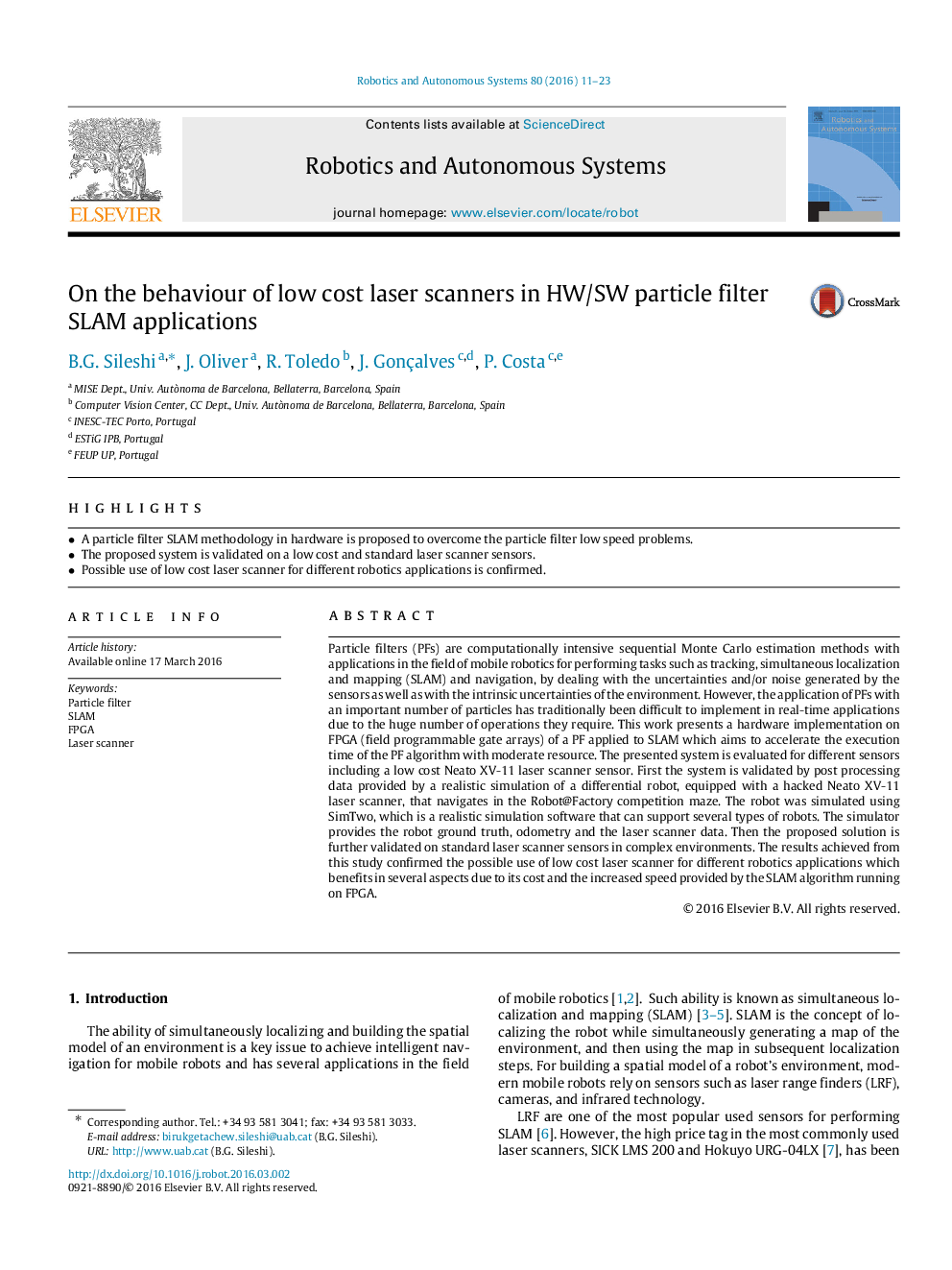| Article ID | Journal | Published Year | Pages | File Type |
|---|---|---|---|---|
| 411242 | Robotics and Autonomous Systems | 2016 | 13 Pages |
•A particle filter SLAM methodology in hardware is proposed to overcome the particle filter low speed problems.•The proposed system is validated on a low cost and standard laser scanner sensors.•Possible use of low cost laser scanner for different robotics applications is confirmed.
Particle filters (PFs) are computationally intensive sequential Monte Carlo estimation methods with applications in the field of mobile robotics for performing tasks such as tracking, simultaneous localization and mapping (SLAM) and navigation, by dealing with the uncertainties and/or noise generated by the sensors as well as with the intrinsic uncertainties of the environment. However, the application of PFs with an important number of particles has traditionally been difficult to implement in real-time applications due to the huge number of operations they require. This work presents a hardware implementation on FPGA (field programmable gate arrays) of a PF applied to SLAM which aims to accelerate the execution time of the PF algorithm with moderate resource. The presented system is evaluated for different sensors including a low cost Neato XV-11 laser scanner sensor. First the system is validated by post processing data provided by a realistic simulation of a differential robot, equipped with a hacked Neato XV-11 laser scanner, that navigates in the Robot@Factory competition maze. The robot was simulated using SimTwo, which is a realistic simulation software that can support several types of robots. The simulator provides the robot ground truth, odometry and the laser scanner data. Then the proposed solution is further validated on standard laser scanner sensors in complex environments. The results achieved from this study confirmed the possible use of low cost laser scanner for different robotics applications which benefits in several aspects due to its cost and the increased speed provided by the SLAM algorithm running on FPGA.
